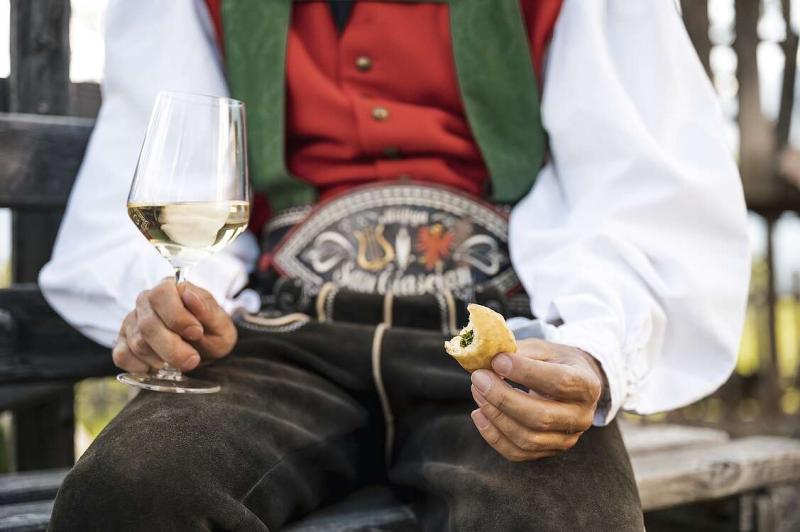Being South Tyrolean is a bit peculiar
A land full of peculiarities
South Tyrol is unique – shaped by an eventful history, mountains and valleys, linguistic diversity and a touch of endearing individuality. This blog post explains what the famous saying ‘Mir Südtiroler sein a bissl eigen’ (We South Tyroleans are a bit peculiar) is all about.
‘We South Tyroleans are a bit peculiar,’ say the locals with a smile. And indeed, anyone who visits South Tyrol quickly notices that many things are a little different here. Shaped by an eventful history, mountains and valleys, and influences from the north and south, this region has developed a culture that is as unique as it is endearing.
For centuries, South Tyrol has been a coveted piece of land. As a trade route in the Middle Ages, it connected the empire with Italy. Later, the Habsburgs ruled over the County of Tyrol until the region fell to Italy after the First World War. All these changes have left their mark, but one thing has always remained the same: the South Tyroleans have never given up their unique characteristics.
You can sense this in the language. When you're out and about here, you never know whether it's better to say ‘Grüß Gott’ or ‘Buon giorno’ – both are correct, both are welcome. Sometimes people even switch from one language to the other in the middle of a conversation, and it's completely natural. Then there are words that only exist here: ‘schtuff’, for example, when something is too much for you, or “fregieren” when you've been tricked. And then there's that little Italian word ‘dai’, which can mean so many things – an invitation, amazement, laughter. It's these little linguistic treasures that shape everyday life here.
This mix of cultures can also be seen in everyday life. Take wedding rings, for example: in Italy, they are worn on the left hand, closer to the heart; in Central Europe, they are worn on the right hand, the hand used for greeting people. In South Tyrol? Everyone wears it however they like. And in addition to German and Italian, a third language can be heard in the Dolomite valleys: Ladin. An ancient language that dates back to Roman times and is still spoken today – living proof of how vibrant tradition can be.
Of course, this coexistence also has its rules. For decades, the famous ‘proportional representation’ system has ensured that public offices are distributed fairly among the language groups. A little bureaucratic perhaps, but typical of South Tyrol: order must prevail, even when three cultures sit at the same table.
And sometimes this peculiarity gives rise to completely new stories. In Glurns, the smallest town in South Tyrol, the Ebensperger family founded Italy's first whisky distillery: PUNI. Using Scottish copper stills, South Tyrolean rye and a great deal of passion, a fine spirit has been maturing there for several years, proving that even if you are ‘a bit peculiar’, something very special can come of it.
That's South Tyrol – unique, idiosyncratic, sometimes difficult to explain. But that's exactly what makes this region so appealing. Between apple blossoms and Dolomite peaks, between ‘Grüß Gott’ and ‘Ciao’, between old traditions and new ideas, a distinctive attitude to life emerges here. And anyone who has been here once understands what South Tyroleans mean when they say: ‘We're a bit peculiar.’


